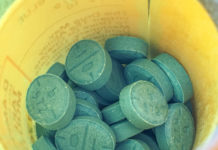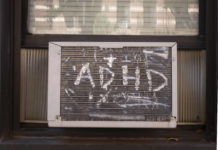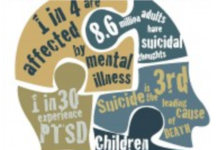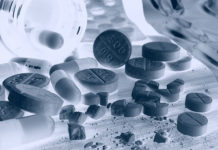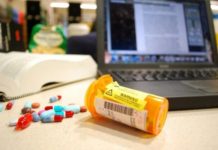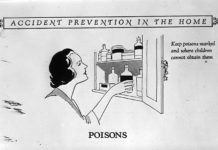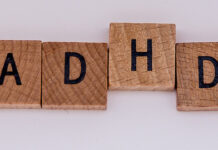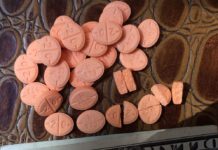Stimulant Medication Use Linked to Sharp Increase in BMI by Eighth Grade
New evidence suggests that children on ADHD medication may have stunted growth initially but more rapid increases in body mass over time.
Enough is Enough Series, #5 – The ADHD Fiction is Exposed. The French Have...
The time has come that the fictitious ADHD qualifies for my ‘Enough is Enough’ series. It’s time to stop addressing pharmaceutical psychiatry on its own terms: its fraudulent and corrupt 'science,' its spurious 'evidence base,' and its imaginary psychiatric ‘diseases.’ I’m done with this. The evidence is in. Let’s get real. Psychiatry has become a profession of drug pushers. As a psychiatrist I am beyond troubled. Let’s get real.
Amphetamines Have Long-Term Effects on Adolescent Brain, Study Finds
A new study published in the journal Neuroscience finds that rats given regular doses of amphetamines during adolescence have brain and behavioral changes in adulthood....
Researchers Question the “Adequacy and Legitimacy” of ADHD Diagnosis
A new article, just published online in the journal Emotional and Behavioural Difficulties, presents research suggesting that the diagnosis of ADHD is philosophically inadequate.
Researchers Question the Utility of an ADHD Diagnosis
A new article examines the usefulness of the ADHD diagnosis and suggests alternatives
New Study Challenges “Late-Onset ADHD”
Researchers found that 95% of adolescents and adults who screened positive for late-onset ADHD did not merit the actual diagnosis.
What If We Are All Wrong About Mental Illness?
From Thoughtful Living: The biomedical model of psychiatry, along with the DSM, is deeply flawed and can often be misleading. To improve, mental health services...
Rates of ADHD Diagnosis and Prescription of Stimulants Continue to Rise
Two new articles find that rates of ADHD diagnosis and stimulant prescription continue to rise all over the world.
Take the ADHD “Test”: An Inside Look at ADHD’s Diagnosis
Just so we are clear, on page 61 of the Diagnostic and Statistical Manual of Mental Disorders (DSM-5), the "creators" of the diagnosis for ADHD admit there is no test sensitive or specific enough to actually diagnose ADHD. Given that the Drug Company-funded "experts" in charge of writing the ADHD diagnosis for the APA admit there is no test capable of diagnosing ADHD, nor are there any biological markers or brain scans capable of serving as a diagnostic, how can they diagnose 6.5 million kids with ADHD?
Ritalin Used to be “Grandma’s Little Helper”
Eugene Raikhel reveals ads from 1966 where Ritalin, now prescribed largely for ADHD, was marketed as a “kind of mind antidepressant for housewives.” “I...
Poor Evidence and Substantial Bias in Ritalin Studies
The authors of a large scale well-conducted systematic review of methylphenidate, also known as Ritalin, conclude that there is a lack of quality evidence for the drug’s effectiveness. Their research also revealed that Ritalin can cause sleep problems and decreased appetite in children.
Stimulant Drugs Have Adverse Effects on Cognitive Functioning in Healthy Students
Study of students without an ADHD diagnosis finds that stimulants (Adderall) have little impact on cognitive performance.
Researchers Find that Textbooks Include Biased Information About ADHD
A review of academic textbooks finds that they often leave out effect sizes and molecular genetics findings, both of which suggest minimal impact of genetics on ADHD. Instead, textbooks focus on overblown conclusions from behavioral studies.
Large Increase in Poison Control Calls for Children Taking ADHD Drugs
New data shows that calls to US poison control centers have increased significantly for children taking stimulant ADHD drugs.
“Overprescribing of Drugs for Adult ADHD Causing ‘Trail of Misuse, Addiction and Death'”
An investigative report finds that the over-prescription of ADHD drugs is causing “a trail of misuse, addiction, and death.” “At morgues in Florida, a...
‘Take Your Pills’ is a Fascinating Look at the Adderall Craze
From The Michigan Daily: Netflix's new documentary "Take Your Pills" examines the historical, cultural, social, and systemic factors that have shaped the ever-increasing rates of...
The Presumption of Incompetence: Why Traditional ADHD Treatments Fail
The two most popular interventions for ADHD are drugs and stringent control. Those who believe in the traditional biological determinist view assert that others must provide the control that people diagnosed with ADHD lack. In this treatment protocol, diagnosed individuals are remanded into treatment that mimics institutional care (i.e., others control their access to resources and their behavior is restrained with drugs). While both of these impositions can yield some short-term benefits, they can also produce unwanted side effects much like what happens when there is incarceration
Alan Schwarz ‘ADHD Nation’ Podcast
The New York Times correspondent Alan Schwarz exposes the roots and rise of ADHD, and reveals the powerful forces fueling its widespread diagnosis and...
“No Evidence Ritalin Makes a Difference Long Term for ADHD Kids”
The Sydney Morning Herald reports that, three years into an Australian study that is following 178 children with ADHD and 212 children without ADHD, the...
Researchers Can’t Predict Whether Childhood ADHD Will Impact Adult Functioning
New research has found that a childhood ADHD diagnosis is not predictive of adult functioning in boys.
Multisystemic Therapy No More Effective than Standard Care for Antisocial Behavior
Study counters previous evidence supporting multisystemic therapy, finding adolescents are just as likely to have out-of-home placements when receiving multisystemic therapy versus management as usual.
African American and Hispanic Youth Discontinue ADHD Treatment at Higher Rates than White Youth
Study examines racial and ethnic disparities in the quality of care for Medicaid-enrolled children starting ADHD medication.
Outdoor Education Tied to Psychological and Academic Benefits
How the satisfaction of basic psychological needs (BPN) in outdoor education environments can peak student interest and boost intrinsic motivation.
CDC Reports Increased Psychostimulant Prescriptions in Women of Reproductive Age
Psychostimulant prescriptions have increased by 344% (from 2003 to 2015) for women of reproductive age (15-44 years old).
ADHD Medication Risks Outweigh Benefits in Most Cases
A systematic review of studies of stimulant medications for ADHD has concluded that the drugs should be used as a last resort, in rare...

